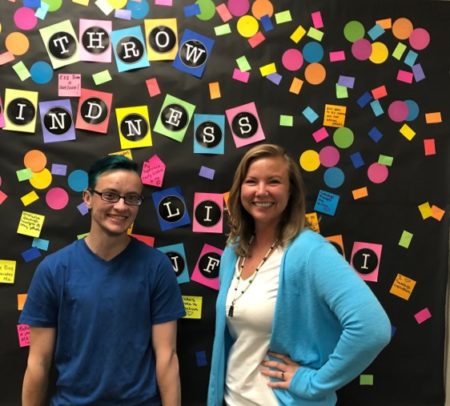Youth and young adult (YYA) engagement is crucial to ending YYA homelessness. That is why our Anchor Community Initiative requires that two young people with lived experience participate in each community’s Core Team – and Spokane has met this milestone! We spoke to Edin Denison and Luke Grayson from the Spokane team to hear how they’ve worked towards this goal.

Edin works at The Mockingbird Society and leads the Spokane Youth Advisory Board (YAB), and Luke is a young person who participates in the Spokane Core Team. Edin has been really happy to see the same youth and young adults attend meetings, and Luke has appreciated how team members have stepped up as allies for the young people on the team.
“Being an ally means treating young people as equals and using your voice to stand up for us,” Luke said. “If someone calls us kids or uses the wrong pronouns, correct them.”
For Edin, achieving meaningful YYA engagement comes down to building relationships. They’ve found that simple (but important) gestures like learning young people’s pronouns can go a long way, and that including young people in decision-making helps them feel heard and invested in the process. Like a true ally, Edin insists that others take the same care when interacting with young people.
“I am humbled every day that I’m allowed into the personal lives of the young people I serve,” Edin said. “It is awesome to see their confidence grow and to see them speak up in meetings.”
Building meaningful and authentic relationships with YYA takes time and commitment. Edin and Luke have three guiding principles for teams and organizations that are just getting started on this journey:
- Respect: Be mindful of your actions and demeanor when interacting with young people. Pay attention when young people speak and be thoughtful about your contributions to the discussion.
- Accountability: Mistakes happen. If we realize we’ve done something wrong or someone points out we’ve made a mistake – like using the wrong pronoun – we simply need to apologize and make a conscious effort to avoid the same mistake in the future.
- Empathy: For YYA with lived experience, life circumstances can further complicate the difficult times we all go through as young people. Be understanding when these difficulties impact how young people show up in the room and create spaces where young people feel comfortable bringing their whole selves. Young people with lived experience and young people of color may feel that they need to monitor themselves to keep from coming off as “loud” or “angry.”
Including young people with lived experience in our teams is essential to arriving at effective solutions. Young people who have experienced homelessness are uniquely qualified to speak on what young people need. As our teams work towards achieving quality, real-time data, young people’s input is crucial when it comes to shaping outreach, evaluating ease of access to systems of care and approaching YYA in a culturally appropriate way.

Leave a Reply